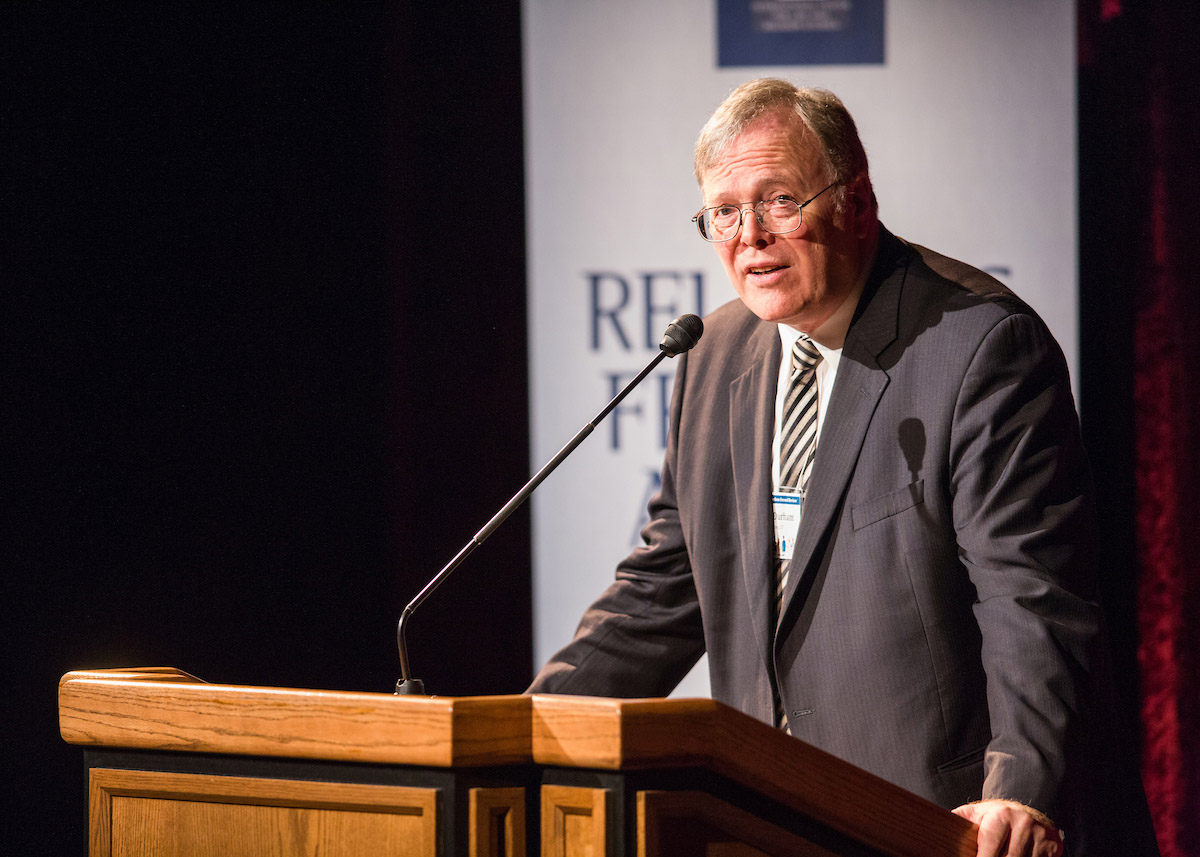Thursday Concluding Session: Elizabeth Clark, W. Cole Durham, Jr., Brett Scharffs

by Gabriell Sabalones, 2018 ICLRS Student Fellow
In the conclusory session that wrapped up the two-day long Religious Freedom Annual Review, the speakers that presented were Elizabeth Clark, Associate Director of the International Center for Law and Religion Studies, W. Cole Durham, Jr., Founding Director of the International Center for Law and Religion Studies, and Brett G. Scharffs, Director of the International Center for Law and Religion Studies.
In her closing remarks, Clark thanked those who had made the event possible, both as speakers and as organizers. She explained that her comments would be brief because, she quipped, “I’m the only thing standing in between you and the rest of your life.” Clark used her time to argue the need to come back to the “common good.” She observed, “We’re all aware of the tribalism that is rampant and is certainly not new. Tribalism is often a shortcut for the laziness of people who don’t want to do the hard work to listen with empathy.” She urged that there is room for deep difference while still being able to engage is a common project.
Cole Durham drew upon the forty years he’s spent thinking about these issues in his profession. He concluded that, “Religious freedom is very much action; it’s personal.” He observed that in many ways religious freedom is the two great commandments of Christian theology; that is to love God and to love your neighbor as yourself. He warned against the dangers of fear. “I think religious freedom is about overcoming fear,” Durham said. Fear, he argued, leads to polarization. He ended by calling on those in assembly to be able to articulate the principles that had been taught during the past two days in “sounder ways.”
Brett Scharffs also used part of the time he was allotted to thank those in attendance and those who had helped to make the event a reality. He then began his remarks by citing the Pew study of international hostility against religion for 2016, which had just been released that morning. He cited a number of international religious liberty conflicts before saying, “We have our own problems, but we can be grateful that we do not face the violence and even genocide that many face around the world.” He then made a number of pleas to those in attendance including, listening without being silent, slowing down, being thick skinned rather than thick headed, always being kinder than necessary, being a source of light rather than a source of darkness, and finally remembering to love. Quoting the pop band, U2, he ended with, “Love is bigger than anything in its way.”